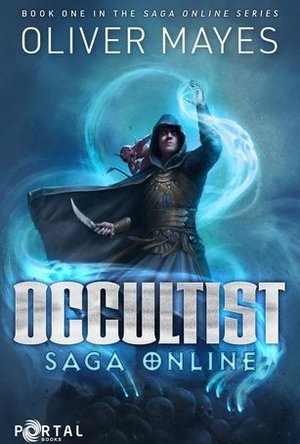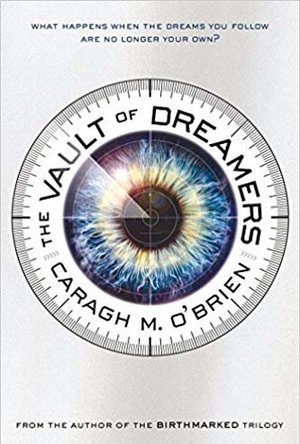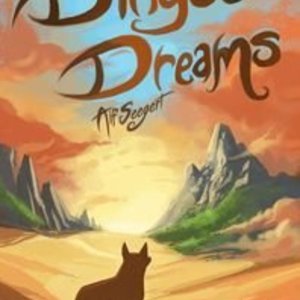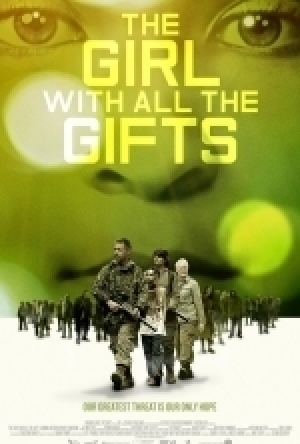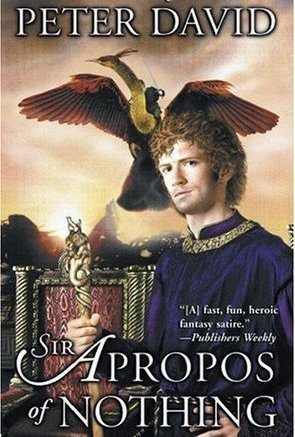
codeSpark Academy
Education and Games
App
codeSpark Academy with The Foos is the #1 learn to code program for kids 4-9! Our award-winning app...

Papa's Taco Mia HD
Games
App
Have a flavor fiesta with seasonal tacos and daily specials in Papa's Taco Mia HD! -- ABOUT THE...
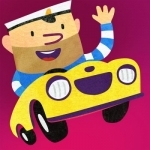
Fiete Cars
Education and Games
App
In Fiete Cars the children are the master builders. In this app kids can create their own car game....
Ross (3284 KP) rated The Occultist in Books
Feb 12, 2019 (Updated Feb 14, 2019)
The LitRPG genre (the best-known example being Ready Player One) is something of a narrow one. There are only a few levers to pull: the main character's real life scenario, the game mechanics, the main character's chosen "class" in-game and the conflicts therein.
The Occultist looks to mix this up a bit with the main character choosing a less traditional class, of occultist - that is, he learns the ability to summon a variety of demons and spells/abilities to use with them. This would mark The Occultist out from the crowd, if it weren't for Awaken Online already having done almost the exact same. In AO, Jason chooses a dark class and summons zombies, skeletons etc, and a large part of the early stages of this book really bear a very close resemblance to AO. We have the main character's problems at home, leading him to want to escape into the game, and to find a way to make money from his gaming hobby. The chosen in-game path is almost identical. There is an extremely strong, popular player that he wants to compete with.
From early on, I was thinking this book was a rip-off of AO. But the second half of the book is really where the book marks itself apart from AO. Whereas that book's action was focused on large scale strategy in battles, here we are scurrying around in the background picking players off one by one and there are some truly excellent action sequences, where the abilities and spells learned and the demons at Damien's disposal are used to some really creative effects. Damien looks to get some revenge on his nemesis and also to try and "level up" quickly (again, a key component of LitRPG books), and tries to pick off players as they battle other players, or take on perilous dungeons.
A lot of LitRPG books have had a very immersive gaming element, at times it was more like reading a more traditional fantasy book but where the main character was more clear what he was doing and what skills/abilities he was using. Here you are always aware the character is in a game: he "equips" clothes rather than getting dressed, there is no need for eating or sleeping, what can and can't be done, what you get from killing another character etc is so much more in line with games than in other books. This again marked it out from other books, and gave it a very different feel.
Another major selling point of The Occultist is that it doesn't mess around with time dilation (game time running at a much faster rate than real time). I don't see why so many of the other books in this genre feel the need to build this in, as it is then hard to keep it consistent, and doesn't really feel right or necessary at any time.
Also, Damien's real world troubles take more focus than in other books, as he struggles to find somewhere to live and is on the run.
While the book manages to stick to its own rules (what can and can't be done etc), there is one moment where the main character manages to do something he shouldn't be able to do (his spells have a cool down period before they can be used again and at least once this isn't observed), which was slightly frustrating given how hard the author had tried to plan out the action in line with the people involved and their skills and strengths.
My only real gripe with the book is the title of the game/series - Saga Online, which sounds less like an exciting new MMORPG, and more like the web portal for booking a pensioners' cruise!
In summary, not an original idea (but hard to have such a thing in this genre) but a superbly well told, exciting and fun read. I heartily recommend this to anyone who likes fantasy books, games like the Witcher or just anyone looking for some real fun escapism.
Sophia (Bookwyrming Thoughts) (530 KP) rated The Vault of Dreamers in Books
Jan 23, 2020
The Vault of Dreamers had a completely different concept that I had been dreaming of, but despite the fact I was thinking of something else entirely, the idea behind The Vault of Dreamers was perfect. Dreams = Hope. What better way than placing that in a prestigious school of art, competition, and to top it off – a reality show? Definitely a dream come true for some – as much as I want to try my hand in acting one day, a camera stalking my every move 24/7 is NOT my dream come true.
Rosie Sinclair is one of the students attending the school – called the Forge School, and the show is called the Forge Show. Not exactly a creative name in my opinion (Forge???). Though, as you read the book and as Rosie finds out what's really happening at night at the Forge School, the name makes a lot of sense. Especially when you take a peek at forge's etymology.
Rosie's sort of different from other characters I read – she's rebellious from the start. She doesn't find anything amiss among the school at first, so her breaking rules straight from the beginning is simple – she misses night. Most I come across are say... going with the flow. Everything's happy until something sinister happens or said character finds something sinister about something. Rosie, well, she's all "I'm a rebellious person, and I'll be breaking rules after laying low for awhile."
The voices Rosie has is really weird as well. O'Brien writes those as though Rosie is two people – she even replies with her thoughts to that voice! If that's not odd, I don't know what is. Actually, I can think of a lot of other things that can be more odd, but that's beside the point.
What I still don't get, however, is why Rosie went to the Forge School when a) she hates cameras and prefers being behind them instead and b) she knew full well when she applied that she would be watched 24/7. The Forge Show isn't one of those shows that go blah – it's widely popular. And with the Internet still existing in Rosie's world, why isn't there a YouTube of sorts? Is everyone that addicted to The Forge Show that there's nothing else to watch? Or is it just the thrill of watching 12 hours – even AGT isn't that long! – of students in grades 10-12 competing for fame? No wonder reality shows are flying up the charts – guys, what happened to the wondrous days of Code Lyoko? :p
As much as I enjoyed following Rosie around as she tries to find out what's going on at night at The Forge School, I was sort of disappointed in the ending. Well, the last chapter, which technically counts as the end. The run down? <spoiler>Rosie gets caught breaking the rules twice, finds out the actual truth of what's going on, dean and co tries to stop her, which results in her being whisked away from the world forever. Essentially, Rosie is dead, yet not dead. Until she's 18, but how much time passes between getting caught and the last chapter, I have no clue. The ending's all very open-ended – which CAN have it's perks – but I don't know what's going to happen with Rosie. However... it's rare the villain wins.</spoiler>
The Vault of Dreamers will most likely appeal to those interested in reading about a reality show where everything is not what it may seem behind cameras. I may look into O'Brien's other works.
------------------
Advanced review copy provided by Macmillan for review
Original Rating: 3.5 out of 5
Original Review posted at <a href="http://bookwyrming-thoughts.blogspot.com/2014/09/arc-review-the-vault-of-dreamers-by-caragh-m-obrien.html">Bookwyrming Thoughts</a>
<a href="http://bookwyrming-thoughts.blogspot.com/"><img src="http://3.bp.blogspot.com/-cG5gfBqJVzk/VA5BIojjZ9I/AAAAAAAAD1g/7srLUfpAGEU/s1600/banner.png"; /></a>
Purple Phoenix Games (2266 KP) rated Dingo's Dreams in Tabletop Games
Mar 25, 2020
In Dingo’s Dreams, the goal is to guide your spirit animal through the dream world and back home before your opponents do. How do you do that? By being the first to get your dreamscape to match the dream card pattern. To setup the game, each player takes the 25 tiles of their chosen animal, and creates a 5×5 grid in front of them. The tiles are double-sided, and the side with the animal should be face-down. There will be 1 extra tile, with the animal on both sides, which should be kept to the side. The Walkabout cards are shuffled and placed in a face-down deck, and a single dream card is revealed. Each turn of the game has 2 phases: Walkabout and Dreamtime. In the Walkabout phase, a card is revealed from the Walkabout deck and all players find the corresponding tile in their grid and flip it over so the animal side is face-up. In the Dreamtime phase, all players will take their extra tile and place it at the end of any row/column, thus forcing that line of tiles to shift over and push out a different tile. Play continues until one player has manipulated their grid to match that of the dream card. Once you do that, call out the name of your animal (Dingo!) and you win!
The rules and gameplay of Dingo’s Dreams are relatively simple, but how does it perform overall? It’s a pretty light game, but it does require some strategy. It takes some creative manipulation to shift your grid to victory. You have to be thinking a turn or two in advance to see if you can setup your grid for maximum benefit. That being said, the randomness of the grid setups and the Walkabout cards sometimes makes the game feel too luck-based. Yes, you do have the power to manipulate your own grid, but ultimately you are at the mercy of the cards and they can really work against you, no matter how strong your strategy is. Another drawback of Dingo’s Dreams is the lack of player interaction. This game is pretty much multi-player solitaire. Everyone is working on their own grids at the same time, and the only thing that affects you are the cards. It’s kind of a quiet and low energy game, which is not necessarily a bad thing, but it can halt the momentum of game night.
On that same note, one of the things that I do really like about Dingo’s Dreams is that it is so relaxed and simple. It makes for a great filler game and palette cleanser between some beefier games. The overall playtime is relatively short, and it can quickly be played multiple times in a row. Another great thing about Dingo’s Dreams is the option to increase the difficulty by adding Hazards. Hazards are tokens placed on certain spaces of the dream cards, and they mean that you cannot have an animal tile in that spot of your grid in order to win. It just adds another level of strategy and can up the ante around the table.
Overall, Dingo’s Dreams is a light and relaxing game that is perfect for playing between heavier games when you need a little break. Was this a good find for me at the Used Game sale? I would say so. It’s not one that I pull out at every single game night, but it’s one that I will use to introduce newer gamers to the hobby, and one that I will pull out when I just want a quiet night in. Purple Phoenix Games gives Dingo’s Dreams a fantasy-filled 13 / 18.

Splashy Dots
Games
App
Imagine yourself in a cozy art gallery, with the sounds of a live jazz act in the background, a...
Charlie Cobra Reviews (1840 KP) rated The Girl With All the Gifts (2017) in Movies
Nov 1, 2020
In a post-apocalyptic future, that has been ravaged by a mysterious fungal disease, those infected have turned into fast, mindless zombies, called "hungries.” A small group of hybrid children who crave human flesh but retain the ability to think and feel, go to school at an army base in rural Britain. There they're subjected to cruel experiments by Dr. Caroline Caldwell (Glenn Close). An exceptional girl named Melanie (Sennia Nanua), grows particularly close to school teacher Helen Justineau (Gemma Arterton) and forms a special bond. When the base is invaded, the trio escape with the assistance of Sgt. Eddie Parks (Paddy Considine) and embark on a perilous journey of survival, during which Melanie must come to terms with who she and what she is.
This movie was really good. I really liked the concept and felt it delivered on the premise and didn't fall through. The little girl Melanie played by Sennia Nanua did an excellent job and I was surprised with how much I wound up liking her character. Gemma Arterton was very good as Helen too and Glenn Close just blew me away as the scientist Dr. Caroline Caldwell. Some of the zombie makeup and special effects weren't the best in certain scenes when they slow walk through some dormant zombies but nothing that horrible that I saw. And I didn't like a couple of scenes with another kind of zombies too but more of that in the spoilers section. The action was really spot on and this movie didn't shy away from blood or gore but also didn't seem to really overly depict any gruesome scenes. It did however show the aftermath of some particularly nasty kills. I have to say this was one of the better zombie movies I've seen and I give it a 7/10 as well as my "Must See Seal of Approval". Definitely check out this zombie movie.
Spoiler Section Review:
As I said above, I really liked this zombie movie. The whole concept intrigued me as it looked like they were a bunch of children prisoners in the trailer. And the part where they man puts his arm in front of them and they start chomping at it made me think that they were somehow part zombies or something; which they were. Really the little girl Melanie made the movie work because her character was so interesting. I enjoyed seeing her character growth and how she viewed the world and how they others interacted with her. It's so awkward in the beginning seeing how the soldiers and others react to them even though their children yet when you see the soldier make that point to the teacher you realize with the rest of the audience that these aren't normal children. I really like how they show she has these instincts that she tries really hard to fight against and how it's too hard sometimes. The action is pretty decent in this movie and some pretty cool fight scenes from some of the kid zombies was a cool surprise too and rather epic. The ending totally threw me off and I never thought It would end like that but now that I think about it, it did kind of foreshadow it by Glenn Close telling Melanie how the seed spores would open, still to end the world by lighting that spore tower on fire was shocking to say the least. Like I said I give this movie a 7/10 and it gets my "Must See Seal of Approval" and definitely see this movie if you haven't already.

SingTrue: Learn to sing in tune, pitch perfect
Music and Education
App
SingTrue can teach anybody to sing in perfect tune. Even if you think you're tone deaf! ~~ Selected...
Mandy and G.D. Burkhead (26 KP) rated Sir Apropos of Nothing in Books
May 20, 2018
So when I picked up Sir Apropos of Nothing, I did so based on the title pun and the back-of-the-book synopsis that promised “a berserk phoenix, murderous unicorns, mutated harpies, homicidal warrior kings, and – most problematic of all – a princess who may or may not be a psychotic arsonist.” I expected another lighthearted riff on the familiar archetypes. Murderous unicorns? Unicorns are not typically described as such! Oh teehee, how unexpectedly humorous!
Sir Apropos of Nothing is a satirical fantasy, just like it promised, though at times it’s hard to tell how much of the story is played for laughs and how much is played straight. See, the thing about satire that’s easy to forget at times is that it’s not synonymous with buffoonery. Make no mistake – Apropos is a funny book, full of witty dialogue and groan-inducing puns. It’s a book that takes great delight in lampshading traditional fantasy tropes and archetypes, as well as the entirety of Joseph Campbell’s Hero’s Journey idea. But it is not always a silly lampshade; sometimes a cliche or trope is pointed out to have its inherit ridiculousness laughed at, and sometimes it is pointed out because it is causing real and lasting pain or damage, either to the society in which it is set or, more often, to the titular Apropos himself and his ever-degrading esteem of both the people around him and himself.
The tone, at first, is hard to pin down. The story starts in media res with the main character being caught by a knight while in mid-coitus with that knight’s wife and escalates from there. The second chapter opens with a fourth wall-breaking narrative admission by Apropos himself that this was done with the express purpose of catching your attention, and now we’re going back to cover Apropos’s childhood, which ends up being equal parts dark, tragic, punny, and conveniently trope-filled – all of which Apropos, as narrator, approaches with the same resigned, blasé outlook.
If this sounds a bit jarring, well, it kind of is. Early on, I wasn’t sure what to think of where the story was trying to go or what I was expected to feel about it. After the first turn from cliché to dark and visceral to light and punny, all within a few pages, I caught myself thinking, “Crap, is this book gonna try and mix goofy jokes with serious drama and thoughtful moral quandary?”
The answer is yes. And it pulls it off fantastically.
This is due in large part to the interesting depths of the antihero, Apropos, who seems to be so named purely for the joke in the title. In Apropos we see a deep sense of justice and rightness that is entirely eclipsed by an even deeper cynicism and an unshakeable instinct for self-preservation. His life is objectively terrible, but rather than brood and lament, he adjusts. He keeps his head down when he can, weathers abuse when he can’t, and learns to deal with the constant shit storm, all the while bottling his growing anger and resentment at a world that would allow such amounts of suffering and hypocrisy to go unchecked. The fact that he himself becomes a selfish, hypocritical, and generally awful person is not lost on him, and the result is a flawed, unheroic, pathetic coward of a protagonist, a magnificently multifaceted bastard who doesn’t spare even himself from his vast and withering contempt.
And it’s a blast. It really is. Apropos is refreshingly pragmatic and unabashedly pessimistic, a welcome change from the typical righteous-yet-humble heroes of traditional fantasy, or even the loveable and untalented everyman in over his head of traditional fantasy spoofs. Despite a portentous birthmark (on his ass, no less) and beginnings that are not “humble” so much as “poverty of the dirtiest kind,” Apropos is everything a hero should not be short of outright evil.
And this, as it turns out, is entirely the point. This is where the satire, funny or otherwise, really shines through. This is the crux that elevates Sir Apropos of Nothing from a generically self-aware fantasy story to an original and memorable subversion of storytelling as a whole.
Without giving too much away, there comes a point in the plot where Apropos realizes that the events surrounding his miserable life are part of a heroic tale that has been preordained by Fate and is now being epically written out by Destiny. And despite his birthmark, his tragic past, and his mother’s constant reassurances that he has some sort of great destiny hovering over him, he is not the hero. He is only a minor character. A walk-on role on the hero’s stage. A brief pit-stop along the hero’s journey. An NPC whose dreams, desires, and continued existence are so far below importance to the story as to be utterly negligible.
And once this finally clicks with him, he violently, brazenly rebels against it. He gives an emphatic middle finger to Fate’s ideas and sets about making Destiny sit up and take notice of him again. He momentarily and violently overcomes his own abject cowardice just long enough to find a way to completely wreck the traditional heroic ballad in which he lives, all on the basis that, dammit, the world owes him more than this, and nobody should be so miserably cursed as to live their entire life as a foil character.
At this point in my own reading, I didn’t know whether to cheer him on or worry about the repercussions of his actions, because he doesn’t suddenly become heroic when this happens. He’s exactly as much of a selfish, lying bastard as before, and however bad you feel for him, you can completely understand why he was never cast for this role in the first place. Add to this the complete disregard of the author for following what seems to be the obvious progression of events in favor of twists that take you completely by surprise, but still make complete sense and arise organically from the story itself, and you eventually give up thinking that you have any sense of where the story’s going or how any event is going to play out. From beginning to end, it feeds you familiar ideas and then completely subverts them, introduces clichés and then proceeds to tear them apart, and you laugh and pity and feel something the entire way through.
In short, Sir Apropos of Nothing is a book that will keep you turning page after page – not necessarily because of the gripping drama (although it has that) or because of any breezy humor (although it has that too), or because the narration itself oozes suspense (although it often does), but because, with the rapid infusion of new and creative ideas and the hidden depths of character constantly bubbling to the surface in everyone involved, you honestly never know what’s going to happen next. If you like fantasy and can stand to have your expectations messed with, Apropos is certainly apropos.
